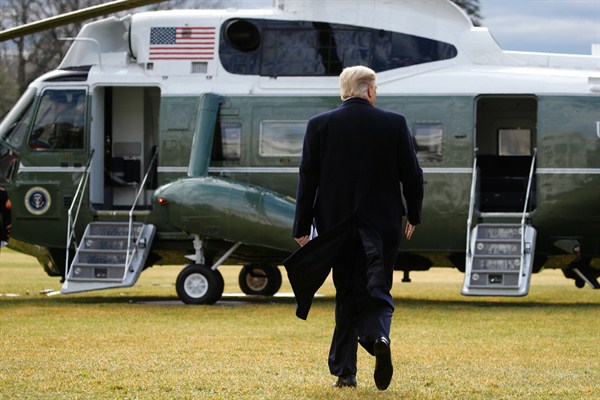A robust economy, the turmoil of the Iowa caucuses and President Donald Trump’s strong poll numbers in the wake of his acquittal in his impeachment trial have lengthened the odds than any Democratic rival will beat him at the ballot box in November. Yet should one of them pull off this audacious feat, the new president will face another colossal challenge: reviving the liberal international order that Trump has done so much to disparage and dismantle. How will he or she do that? Start by reconsolidating the West, giving globalization a human face and bolstering support for democracy and human rights around the world.
The liberal international order was no mirage, and it did not arise by accident. It was the product of U.S. power and American purpose. During World War II, Presidents Franklin D. Roosevelt and Harry Truman laid the foundations for an open, multilateral system under international law, which aimed to allow all peace-loving nations to pursue cooperative security, engage in commerce on equal terms and advance the cause of human freedom. Successive U.S. administrations believed that it was in America’s enlightened self-interest to promote an open, rule-bound order governed by international institutions. Thanks to their efforts, the seven decades after 1945 saw hundreds of multilateral organizations and treaties emerge to govern everything from trade in services to the allocation of slots for satellites in orbit. It is a legacy America can be justly proud of, even if the world was sometimes less liberal, orderly and international than advertised.
That order is now in grave crisis. Trump has abandoned any aspiration to global leadership in favor of a nationalist, transactional and hyper-sovereigntist mindset. He belittles multilateral treaties, organizations and alliances as threats to U.S. interests, regards global commerce as a zero-sum game best handled bilaterally and disdains democracy while fawning over dictators. His “America First” sloganeering is a throwback to interwar isolationists who believed the republic could remain an island of security, prosperity and freedom even as the world collapsed around it—illusions that evaporated at Pearl Harbor on Dec. 7, 1941.

